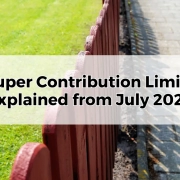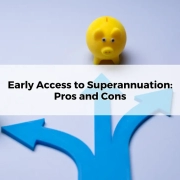How to Use a Reverse Mortgage as Part of Your Retirement Plan
Table of Contents
ToggleA reverse mortgage is a financial product designed for homeowners, typically aged 60 and above, allowing them to access equity in their home without selling it. Unlike traditional loans, repayment is deferred until the borrower moves out, sells the home, or passes away. This mechanism can provide retirees with liquidity, supplementing superannuation and pension income. However, understanding the nuances of reverse mortgages is crucial to determining whether they align with broader financial objectives.
Who Can Qualify for a Reverse Mortgage?
In Australia, eligibility for a reverse mortgage generally requires the borrower to be at least 60 years old and own their home outright or have minimal remaining mortgage debt. Lenders impose specific criteria regarding property location and condition. The loan amount available is typically a percentage of the home’s value, increasing with the borrower’s age. Understanding these eligibility factors ensures retirees make informed decisions about integrating this financial tool into their retirement strategy.
How Reverse Mortgages Work
Reverse mortgages function by converting home equity into a lump sum, regular income stream, or line of credit. The borrower retains ownership of the property while accruing interest on the loan, which compounds over time. Unlike conventional loans, repayments are not mandatory while the borrower resides in the home. However, when the property is sold or the borrower moves into aged care, the loan balance—including accumulated interest—must be repaid. This deferred repayment structure allows retirees to leverage their home’s value while continuing to reside in it.
Benefits of a Reverse Mortgage in Retirement Planning
A reverse mortgage can enhance retirement financial stability by providing a reliable source of supplementary income. It can be used to cover medical expenses, home modifications, or lifestyle enhancements. Unlike withdrawing superannuation or selling investments, accessing home equity via a reverse mortgage preserves other retirement assets, potentially extending their longevity. Additionally, funds obtained through a reverse mortgage are typically tax-free, adding to their appeal as a strategic financial tool.
Risks and Considerations
While a reverse mortgage offers financial flexibility, it is essential to acknowledge associated risks. The compounding nature of interest means the debt can grow significantly over time, potentially eroding home equity. Future financial security, inheritance considerations, and the impact on Age Pension eligibility must also be evaluated. A well-structured financial plan should incorporate these risks to ensure that a reverse mortgage aligns with broader retirement goals.
How a Reverse Mortgage Affects Estate Planning
Utilising a reverse mortgage can influence estate planning outcomes, as it reduces the residual value of the home available to beneficiaries. The loan balance, including accrued interest, must be settled upon the borrower’s passing or permanent relocation. Open discussions with family members and financial advisers can help manage expectations regarding inheritance. Proper estate planning strategies, such as life insurance or alternative asset allocations, may offset potential reductions in estate value.
Comparing a Reverse Mortgage to Downsizing
Retirees considering a reverse mortgage often weigh it against downsizing to a smaller property. Downsizing releases home equity while reducing living expenses, yet it may entail significant relocation costs, stamp duty, and emotional upheaval. A reverse mortgage, in contrast, allows retirees to remain in their familiar environment while accessing liquidity. Comparing these options based on financial and lifestyle preferences ensures retirees make the most suitable choice.
The Role of a Financial Adviser in Reverse Mortgage Decisions
Engaging a qualified financial adviser is crucial in assessing whether a reverse mortgage aligns with an individual’s broader financial strategy. An adviser can evaluate cash flow needs, tax implications, and the impact on pension entitlements. Additionally, an adviser provides insights into alternative funding options, such as superannuation drawdowns or annuities. Seeking professional guidance ensures retirees optimise their financial decisions while safeguarding long-term stability.
The Impact of Reverse Mortgages on Age Pension Eligibility
Reverse mortgage proceeds are generally not classified as income for Age Pension purposes; however, how the funds are utilised may affect pension entitlements. Lump sum withdrawals may be assessed under the asset test if retained as cash or invested in financial products. Strategic structuring of drawdowns can minimise adverse pension impacts while maximising available benefits. Consulting with an experienced financial adviser ensures compliance with Centrelink regulations while optimising financial outcomes.
Costs and Fees Associated with Reverse Mortgages
Reverse mortgages come with various costs, including establishment fees, legal expenses, valuation fees, and ongoing interest charges. Interest rates on reverse mortgages tend to be higher than standard home loans due to the deferred repayment structure. Understanding these costs is essential when comparing financial options. Borrowers should seek clarity on all associated expenses to ensure the benefits outweigh the costs.
Alternatives to Reverse Mortgages
Several alternatives exist for retirees seeking financial support without resorting to a reverse mortgage. Options such as government-backed Pension Loans Scheme (PLS), home equity redraw facilities, annuities, and part-time work may provide viable solutions. Each alternative carries its own benefits and trade-offs, requiring careful evaluation in the context of overall retirement planning. Exploring multiple avenues ensures retirees make well-informed financial choices.
Is a Reverse Mortgage the Right Choice for You?
Deciding whether to incorporate a reverse mortgage into a retirement plan requires thorough evaluation of financial goals, risk tolerance, and lifestyle preferences. While it offers financial flexibility and allows retirees to remain in their home, the long-term implications on wealth and inheritance must be carefully weighed. Seeking tailored advice from a Toowoomba Financial Adviser ensures retirees make prudent financial decisions that align with their retirement aspirations.
A well-considered reverse mortgage strategy can serve as a valuable component of retirement financial planning. Consulting an experienced financial adviser ensures retirees maximise their wealth while maintaining long-term financial security.









